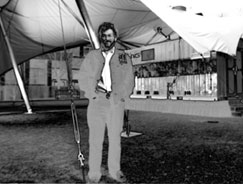Dedication
Introduction
Dan Ariely
Walter Bender
Steve Benton
Bruce Blumberg
V. Michael Bove, Jr.
Cynthia Breazeal
Ike Chuang
Chris Csikszentmihályi
Glorianna Davenport
Judith Donath
Neil Gershenfeld
Hiroshi Ishii
Joe Jacobson
Andy Lippman
Tod Machover
John Maeda
Scott Manalis
Marvin Minsky
William J. Mitchell
Seymour Papert
Joe Paradiso
Sandy Pentland
Rosalind Picard
Mitchel Resnick
Deb Roy
Chris Schmandt
Ted Selker
Barry Vercoe
Sandy Pentland
We are all borgs . . . and it doesn't feel very good.
Humans are turning into machines, and machines are growing human. This is happening at all scales, most obviously as digital technology moves onto and into the human body, and as computers gain emotions and intelligence.
Unfortunately this new human-machine symbiosis doesn't feel very good. Buzzing pagers, ringing cell phones, and barrages of e-mails are leashes that keep people tethered to their jobs. The problem will not be solved by making interfaces that call you by name, by wearing context-sensitive computers to filter the digital onslaught, or by flooding our homes with "smart" devices that try to organize us by gossiping behind our backs. We've been there, done that.
Technology has so far focused either on the isolated individual, or has treated the person as a clueless extra wandering in a computer-controlled environment. Researchers seem to have forgotten that people are social animals, and that the quality of their lives is defined by their roles in human organizations.
Both telephones and organizations used to have fixed locations: the phone in your office was used for business calls, the one at home used for personal communications, and when you were socializing at a restaurant, there was no phone. Mobile phones have unhappily erased these important distinctions between family, work, and social life.

Instead of inventing technology for the individual as an isolated entity, why not invent systems that support people's organizational roles? Or even invent new types of organizations? Instant messaging's "buddy lists" are a first step toward networking humans instead of computers, and we are already beginning to see organizations reinvent themselves around this technology. The greatest potential for such social software, however, is where the need is greatest: for rural areas of developing nations, and for elders isolated in our increasingly dispersed and fragmented society.
There is no escape from being absorbed into the Borg Collective. But we can still try to design the Collective to be a human place to live.
Favorite recent read: the entire Harry Potter series